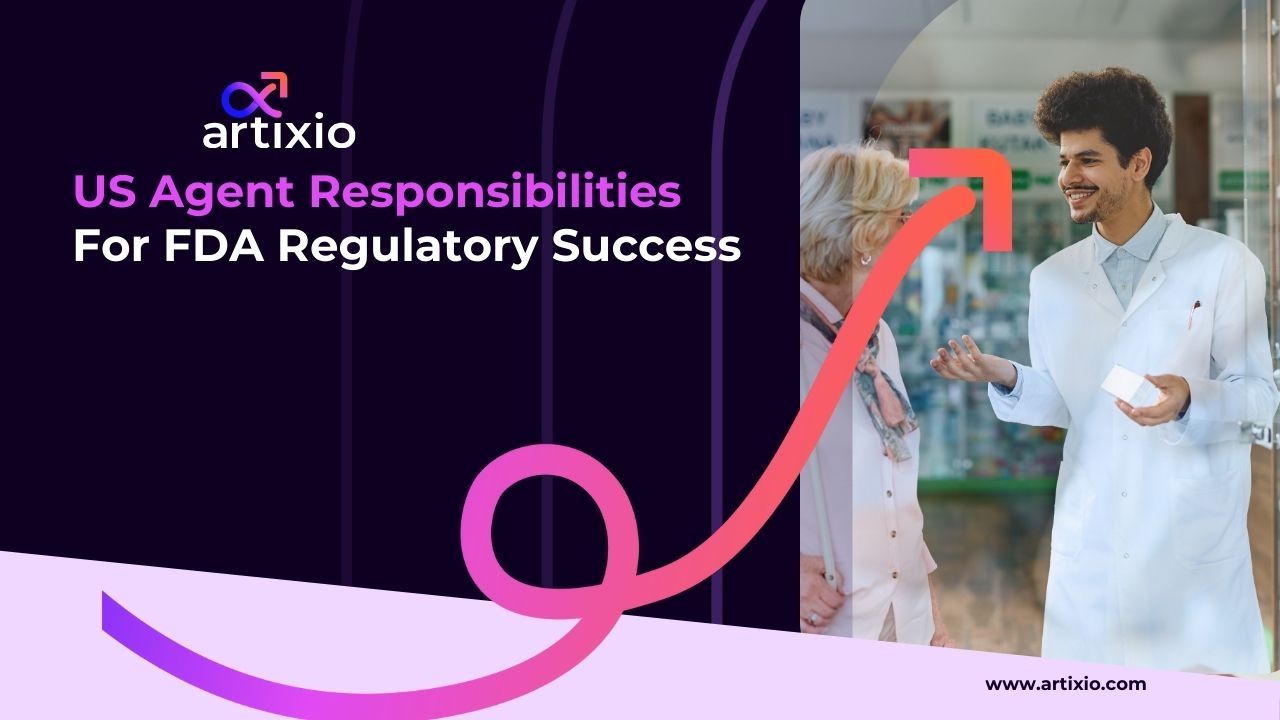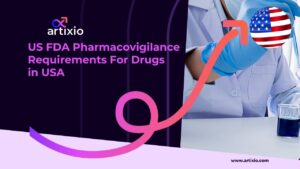The United States Food and Drug Administration (FDA) plays a pivotal role in ensuring the safety and effectiveness of medical devices, drugs, and food products in the United States. For foreign manufacturers looking to enter the US market, complying with FDA regulations is essential. One crucial aspect of this compliance is the appointment of a US Agent. In this blog, we will explore the role of the US Agent, its responsibilities, and why it’s a vital component of regulatory compliance for foreign entities.
What Is a US Agent?
A US Agent is an individual or entity located in the United States that is designated by a foreign manufacturer, distributor, or other foreign establishment. This appointed representative serves as a communication bridge between the FDA and the foreign entity. The role of the US Agent is particularly important when the foreign establishment does not have a physical presence in the United States.
The foreign manufacturer must make updates to the US Agent’s information within the FURLS system. This includes providing details such as the US Agent’s name, job title, business name, address, telephone number, fax number, DUNS (Data Universal Numbering System) identifier, and email address.
Who is eligible to serve as a US Agent?
A US Agent can either be an individual or an organization, and they must have a residence within the United States. In the case of an entity, it should be registered in the US and possess an active DUNS number, along with a physical address for contact purposes. Furthermore, the appointed individual or entity should be available for communication during regular business hours.
Who should designate a US Agent?
Any foreign establishment engaged in the manufacturing, preparation, propagation, compounding, or processing of medical devices and wish to market their products in the United States, including contract manufacturers and contract sterilizers, are obligated to appoint a US Agent.
Specification developers are also subject to establishment registration and must appoint a US Agent along with an official correspondent. According to the FDA, any person initiating or developing specifications for a device that will be manufactured by a third party must register their establishment with the FDA before conducting business in the US. Consequently, specification developers are also required to designate a US Agent.
This requirement applies to the following:
- Primary Manufacturers
- Contract Manufacturers and Remanufacturers
- Contract Sterilizers
- Foreign Exporters of medical devices based outside the US
- Specification Developers
- Reprocessors of single-use medical devices
Additionally, any foreign food, drug, or medical device facility that intends to register with the FDA should appoint a US Agent. This requirement also extends to foreign applicants submitting NDA, ANDA, or IND applications and companies planning to send controlled correspondence to the FDA.
Responsibilities of a US Agent
FDA Communication: The primary function of a US Agent is to facilitate communication between the FDA and the foreign establishment. This includes receiving and responding to FDA communications, such as inspections, inquiries, and regulatory submissions, on behalf of the foreign entity.
Emergency Situations: In cases of emergencies or significant regulatory actions, the US Agent serves as a point of contact for the FDA. They are responsible for relaying important information to the foreign establishment promptly.
Record Keeping: US Agents must maintain records of all communications with the FDA. This includes records of submissions, responses, and other relevant documentation.
Assisting with Regulatory Submissions: US Agents may assist foreign establishments in preparing and submitting various regulatory documents and applications to the FDA. This can include submissions for product approvals, facility registrations, and more.
Facilitating Inspections: If the FDA conducts an inspection of the foreign establishment, the US Agent may be present during the inspection to facilitate communication and address any immediate concerns.
According to the US FDA, the duties and obligations of a US Agent remain consistent, regardless of the device class produced by a foreign establishment. The US Agent is not responsible for tasks such as reporting adverse events (as outlined in 21 CFR Part 803) or submitting 510(k) Premarket Notifications (as specified in 21 CFR Part 807, Subpart E). Instead, it is the manufacturer’s responsibility to keep their US Agent informed about any post-approval modifications, updates to the device version, alterations in manufacturing locations, changes in labeling and packaging, and any adjustments related to the registration and listing of medical devices. In the context of notifying the US FDA about post-approval changes, the official correspondent plays a pivotal role.
Why Is a US Agent Necessary?
Regulatory Compliance: The FDA requires foreign establishments to have a designated US Agent to ensure that communications and regulatory requirements are met. Compliance with FDA regulations is mandatory for foreign entities wishing to market products in the United States.
Communication Bridge: The US Agent acts as a conduit for information exchange, ensuring that the FDA can reach the foreign establishment promptly and vice versa. This is especially important in emergencies or urgent situations.
Expertise: Many US Agents are well-versed in FDA regulations and procedures, providing valuable expertise to foreign manufacturers navigating the complex regulatory landscape.
Market Access: Having a US Agent can streamline the regulatory process, making it easier for foreign manufacturers to access the US market, which is one of the largest and most lucrative markets for medical devices, drugs, and food products.
Is it possible for my official correspondent to also serve as a US Agent?
Foreign manufacturers have the option to designate the same individual as both the US Agent and the official correspondent. In such instances, the official correspondent must be located in the United States and will assume the responsibilities and duties of both roles.
An official correspondent serves as the primary contact for device submissions such as 510(k) and PMA applications and can be either an employee of the sponsoring entity or a third-party agency. The presence of an official correspondent is necessary for all submissions, regardless of whether they come from a domestic or foreign manufacturer. Unlike the US Agent, the official correspondent is not restricted to being located in the US and can be from any country. It’s important to note that the US Agent does not play a role in device submissions and approvals.
Designating Multiple US Agents
In accordance with the US FDA regulations, each foreign establishment is allowed to designate only one US Agent. However, there is an exception. If two distinct products are being produced in separate establishments, one US Agent can be assigned for each product. Conversely, when multiple products are manufactured within the same establishment, only one US Agent should be designated. Conversely, when one product is being produced in two different establishments, the manufacturer has the option to appoint two separate US Agents, one for each establishment, for the same medical device.
Changing the Designated US Agent
Foreign manufacturers retain the flexibility to alter their US Agent whenever they deem it necessary. Such a change in US Agent will not impact the registration or ongoing business activities. Even if the medical device is actively imported and marketed in the USA, the manufacturer has the option to replace their existing US Agent. To effect this change, the manufacturer must update the FURLS system with the new US Agent’s particulars, which include name, location, contact details, business name, address, and more. Subsequently, confirmation of this change must be verified through email correspondence.
Designating a distributor or importer as a US Agent
In the choice between appointing a distributor or independent parties as a US Agent, there are important considerations. Distributors may lack expertise in regulatory matters and might struggle to handle incidents involving your products in the USA, potentially putting your interests at risk. Moreover, switching distributors may necessitate finding a new US Agent.
Alternatively, foreign manufacturers can appoint their distributor or importer as a US Agent, but they should carefully assess potential conflicts of interest or biases arising from their role as distributors or importers versus their regulatory obligations as a US Agent.
On the other hand, independent third-party Regulatory service providers can serve as US Agents. While this option comes with an additional cost, it offers confidentiality and provides dedicated and professional US Agent services free from any bias or conflict of interest.
Timeline for Designating a US Agent
Foreign manufacturers are required to appoint a US Agent for the purpose of conducting establishment registration, device listing, and related activities, all of which must be completed before importing their devices into the United States. In the case of Class I and Class II devices that are exempt from the 510(k) requirement, the appointment of a US Agent can be made immediately, followed by the completion of establishment registration, device listing, and subsequent importation into the US.
However, for Class I and Class II devices that do not have 510(k) exemptions and certain Class III devices subject to premarket notification, the appointment of a US Agent, as well as the activities related to establishment registration and device listing, should occur after obtaining 510(k) clearance. Similarly, for certain Class II and Class III devices subject to premarket approval (PMA), the appointment of a US Agent can take place only after securing PMA clearance. This same sequence applies to other devices opting for De-Novo, Investigational Device Exemption (IDE), and Humanitarian Device Exemption (HDE) submissions.
In the world of FDA regulatory compliance, the US Agent serves as a crucial liaison between foreign entities and the FDA. Their role in facilitating communication, ensuring compliance, and expediting regulatory processes cannot be understated. For foreign manufacturers and establishments looking to navigate the US market successfully, appointing a knowledgeable and reliable US Agent is a vital step in the journey toward regulatory compliance and market access.
Ready to streamline your FDA regulatory compliance and gain access to the lucrative US market? Our experienced US Agent services are here to guide you every step of the way.
Don’t miss out on this opportunity—get started with us today!




